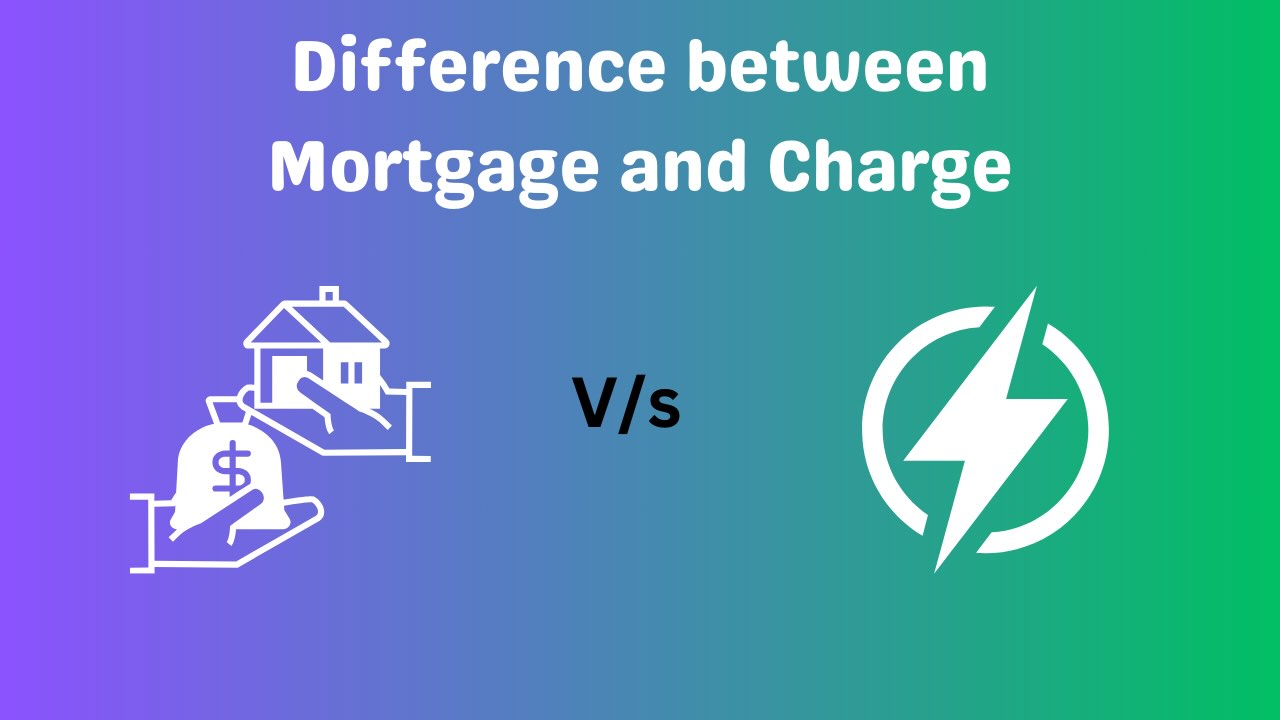Difference between Mortgage and Charge with Comparison Chart. Borrowings by companies are often backed by securities on the strength of which loans are given by the banks or FIs. A charge is created when security is given for securing loans or debentures by way of a mortgage on the assets of the company. The charge may be fixed or floating. The Companies Act covers the provisions relating to registration, modification, satisfaction of charges, consequences of failure in Registration, delay if any in this regard etc.
Quick Links
Definitionof Mortgage
A mortgage is the transfer of an interest in specific immovable property for the purpose of securing the payment of money advanced or to be advanced by way of loan, an existing or future debt or the performance of an agreement which may give rise to pecuniary liability. Must Check How to apply for DIN.?
Definitionof Charge
A charge is a security given for securing loans or debentures by way of a mortgage on the assets of the company. A company, like a natural person, can offer security for its borrowings. Normally, the debentures and other borrowings of the company are secured by a charge on the assets of the company. Where property, both existing and future, is agreed to be made available as a security for the repayment of debt and creditors have a present right to have it made available, there is a charge created.
The legal right of the creditor can only be enforced at some future date if certain conditions governing the loan are not met. The creditor gets no legal right either absolute or special to the property charged. He only gets the right to have the security made available/enforced by an order of the Court.
After reading this articleyou will be able to understand the procedure of creation of charges, their registration, modification, satisfaction etc., and their registration aspects.
Difference between Mortgage and Charge
| Basis | Mortgage | Charge |
| Mode of creation | A mortgage is created by Acts of the parties | A charge may be created through Act of parties or by operation of Law |
| Registration | A mortgage requires registration under the Transfer of Property Act, 1882 | A charge created by operation of law does not require registration But a charge created by act of parties requires registration. |
| Term | A Mortgage is for a fixed term | A Charge may be in perpetuity |
| Effect | A Mortgage is a transfer of an interest in specific immovable property | A charge only gives a right to receive payment out of a particular property |
| A mortgage is good against subsequent transferees. | A charge is good against subsequent transferees with notice. | |
| Liability | A simple mortgage carries personal liability unless excluded by express contract. | In case of charge, no personal liability is created. But where a charge is the result of a contract, there may be a personal remedy. |
| Transfer | A mortgage is a transfer of an interest in a specific immovable property. | There is no such transfer of interest in the case of a charge. Charge does not operate as transfer of an interest in the property and a transferee of the property gets the property free from the charge provided he purchases it for value without notice of the charge. |
Recommended







